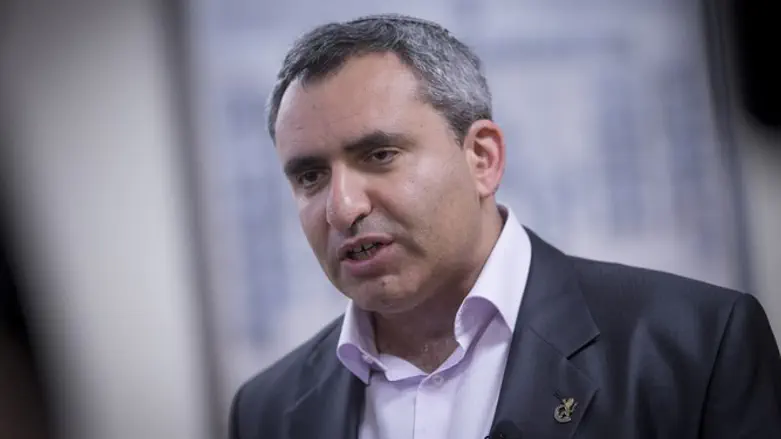
Israel must prepare for the post-Mahmoud Abbas era in the Palestinian Authority, Minister of Jerusalem Affairs and Minister of Environmental Protection Ze'ev Elkin told Arutz Sheva on Tuesday.
"I have been saying for more than a year that the Palestinian Authority will not survive Mahmoud Abbas's departure, because he oppressed any political culture in the Palestinian Authority, any political process, there's no functioning parliament, and no ability to organize elections in which they will not lose to Hamas,” he said.
“They tried to organize municipal elections and in the end they were forced to hold them only in Judea and Samaria and without Hamas because it was clear that they would lose to Hamas. They have no political authorization mechanism, not through elections, not through parliament. There are many candidates for leadership and they will fight each other with power groups. I think that just as Abbas was one of the founding fathers of the Palestinian Authority, he will also bury the Palestinian Authority. There is a certain historical justice here,” continued Elkin.
"The Oslo Accords were disastrous for Israel, and I think that there is an interesting situation here in which the Palestinians themselves will be brought to a standstill because of internal struggles," Elkin added.
Preparing for post-Abbas era, he explained, “means there will be different challenges. A security challenge - there are many people in the area with weapons, and obviously there will be anarchy, and this could spill over into attacks on roads and communities. Civilian preparation is also required, to be ready after the central government there collapses. I do not know whether we will return to the days of the Civil Administration fully being in charge of the population or if there will be leadership in the various cities, but it is clear that responsibility will be imposed on us."
"There is also the international arena. We have to start to accustom the international community, which talks about a Palestinian state and sees the Palestinian Authority as something eternal and permanent, that the PA has no ability to establish a state. What do we do next? Will the world continue donating money or will everything fall on us? What about the local leadership? There is a challenge here because until now we have worked with our counterparts in the Palestinian security forces and we do not have enough experience working with the local leadership, which is not part of the PA's formal system.”
"It is clear that the entire layer of leadership among the Palestinians will change. There are very dramatic changes that will challenge us,” continued Elkin. “For example, from a security point of view, there will be a challenge that could exact a difficult price, but on the other hand it is an opportunity because it will force us and the world to deviate from the path of establishing a Palestinian state.”
Asked whether he believes that after a few months of internal struggles in the post-Abbas era, a new leader such as Mohammed Dahlan could take the reins of power, Elkin opined that such a stabilization would not be possible since the PA has no mechanism for political decision-making, and in the absence of such a mechanism, it will be unable to function.
